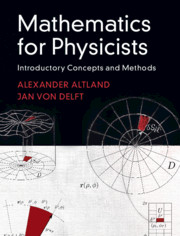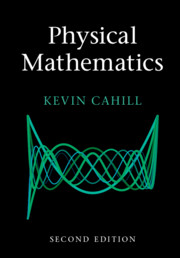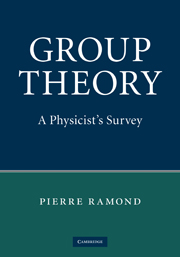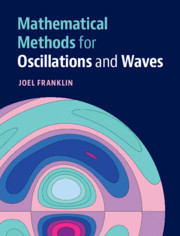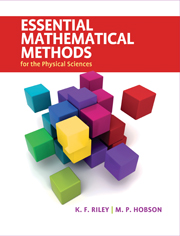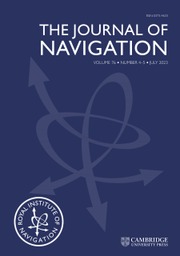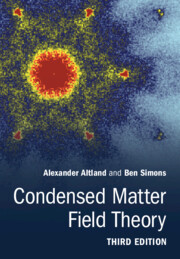Mathematics for Physicists
This textbook is a comprehensive introduction to the key disciplines of mathematics - linear algebra, calculus, and geometry - needed in the undergraduate physics curriculum. Its leitmotiv is that success in learning these subjects depends on a good balance between theory and practice. Reflecting this belief, mathematical foundations are explained in pedagogical depth, and computational methods are introduced from a physicist's perspective and in a timely manner. This original approach presents concepts and methods as inseparable entities, facilitating in-depth understanding and making even advanced mathematics tangible. The book guides the reader from high-school level to advanced subjects such as tensor algebra, complex functions, and differential geometry. It contains numerous worked examples, info sections providing context, biographical boxes, several detailed case studies, over 300 problems, and fully worked solutions for all odd-numbered problems. An online solutions manual for all even-numbered problems will be made available to instructors.
- Presents abstract mathematical concepts and practical computational methods in unison and from a physically motivated perspective, making even advanced mathematics tangible
- Organized into three parts which are strongly interlinked and may be read in parallel, allowing reading orders to be chosen according to taste and time considerations
- Provides numerous worked examples, info sections offering physical context, biographical boxes introducing famous scientists, and several detailed case studies
- Includes over 300 problems, referenced from within the text at the location where they first become relevant, as well as fully worked solutions for all odd-numbered problems at the end of the book
Reviews & endorsements
'A concise and engaging exposition of the mathematics necessary for physics students.' Juan Maldacena, Institute for Advanced Study
'… an outstanding addition to the existing stock of books on mathematical methods. It is rigorous, yet readable, and up to date, covering topics like differential forms, which are more and more in use in many areas of physics. An invaluable part of the book that contributes greatly to its pedagogical mission is the vast collection of exercises and their solutions.' R. Shankar, Yale University
'This book takes the physics student along a well-planned trip through mathematics from high school geometry to graduate-level tensor calculus. The key concepts are introduced with a degree of care and precision that is unusual in a book for physicists - but the precision is well motivated, so not at all intimidating. The book is up to date in its contents, especially as it includes the calculus of differential forms, now an essential tool in the professional physicist's toolbox.' Michael Stone, University of Illinois
'It contains all the material required in the undergraduate curriculum and emphasises a pedagogical strategy that presents a unified approach of concepts and methods, whereas most mathematics books for physicists tend to concentrate on methods.' Mike Glazer, Acta Crystallographica
Product details
February 2019Hardback
9781108471220
720 pages
253 × 193 × 37 mm
1.7kg
313 b/w illus.
Available
Table of Contents
- Preface
- Part I. Linear Algebra:
- 1. Mathematics before numbers
- 2. Vector spaces
- 3. Euclidean geometry
- 4. Vector product
- 5. Linear maps
- 6. Determinants
- 7. Matrix diagonalization
- 8. Unitarity and hermiticity
- 9. Linear algebra in function spaces
- 10. Multilinear algebra
- Problems: linear algebra
- Part II. Calculus:
- 1. Differentiation of one-dimensional functions
- 2. Integration of one-dimensional functions
- 3. Partial differentiation
- 4. Multi-dimensional integration
- 5. Taylor series
- 6. Fourier calculus
- 7. Differential equations
- 8. Functional calculus
- 9. Calculus of complex functions
- Problems: calculus
- Part III. Vector Calculus:
- 1. Curves
- 2. Curvilinear coordinates
- 3. Fields
- 4. Introductory concepts of differential geometry
- 5. Alternating differential forms
- 6. Riemannian differential geometry
- 7. Case study: differential forms and electrodynamics
- Problems: vector calculus
- Solutions: linear algebra
- Solutions: calculus
- Solutions: vector calculus
- Index.

